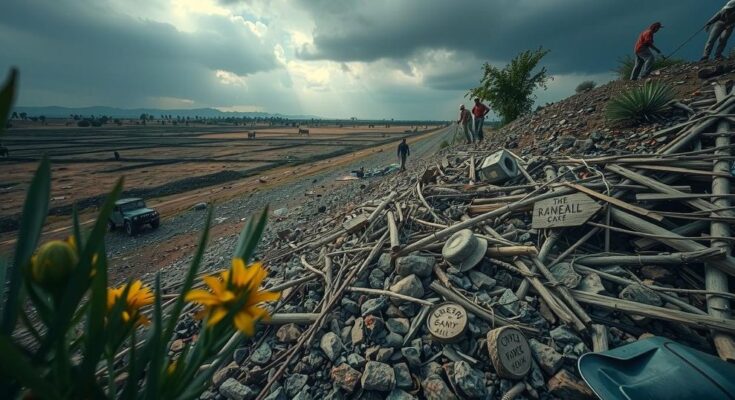South Sudan, the world’s youngest nation, has grappled with civil war and humanitarian crises throughout its 13 years since independence. The internal conflict initiated in 2013, coupled with external pressures such as an influx of refugees from Sudan and recent flooding, has exacerbated the challenges facing the nation. Despite efforts for peace, the country remains in turmoil, struggling with famine, poverty, and the complexity of delivering aid to those in need.
South Sudan, recognized as the world’s youngest sovereign nation, has struggled with persistent civil strife during its brief 13-year history since its independence from Sudan in 2011. This split was initially celebrated as a victory for self-determination; however, over the years, the nation has been marred by the very political instability and violence that characterized its former existence. The 2005 peace agreement that led to South Sudan’s independence was intended to end a prolonged civil war, yet it failed to establish lasting peace. An internal conflict erupted in 2013 when President Salva Kiir Mayardit dismissed his cabinet and accused Vice-President Riek Machar of orchestrating an attempted coup. This resulted in a devastating civil war that has since claimed numerous lives and displaced more than 4 million individuals from their homes. Efforts by the United Nations peacekeeping forces to mitigate the violence have proven insufficient, as the brutal clashes have become distressingly commonplace. In 2018, a power-sharing agreement sought to restore stability, with both the president and the former vice-president committing to disarmament in the hope of achieving a fragile peace. Despite the cessation of open warfare, the conflict in neighboring Sudan has exacerbated South Sudan’s challenges, forcing the nation to grapple with an influx of approximately 500,000 refugees. The current humanitarian situation in South Sudan is dire, with widespread famine and poverty noted by the United Nations. Recent warnings by the government regarding expected flooding have materialized, displacing over a million people, many of whom have sought refuge on elevated ground. Nonetheless, the rains have complicated relief efforts, making it increasingly difficult to deliver much-needed assistance to the affected populations.
South Sudan emerged as an independent nation after a lengthy struggle for autonomy from Sudan, which culminated in a peace agreement in 2005. This historic moment celebrated the promise of self-governance and the end of decades-long conflict. However, the anticipated peace was quickly undermined by internal power struggles, resulting in a civil war that erupted in 2013. Despite a power-sharing agreement in 2018 designed to quell hostilities, South Sudan has remained destabilized by ongoing challenges, including a humanitarian crisis fueled by floods, poverty, and a refugee influx from Sudan.
In summary, South Sudan’s status as the newest country in the world belies the profound challenges it faces, including persistent civil unrest, a humanitarian crisis, and the struggle to provide for its displaced population. The country’s history of struggle for independence has morphed into a prolonged fight for peace and stability, leaving communities vulnerable and in need of substantial international support and sustainable solutions.
Original Source: www.express.co.uk




